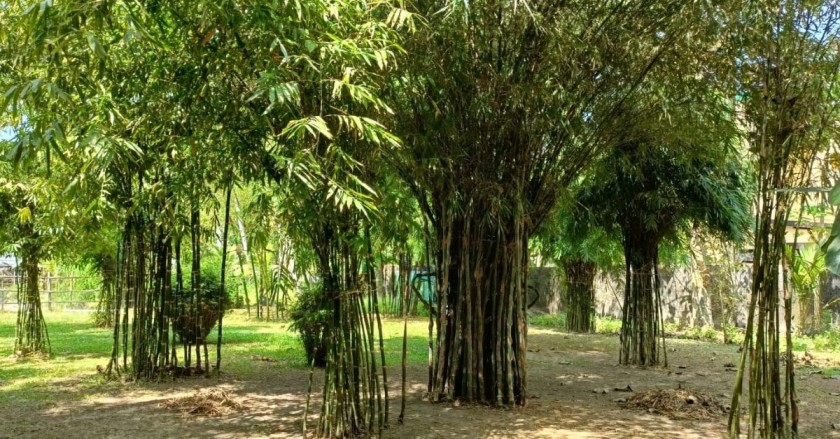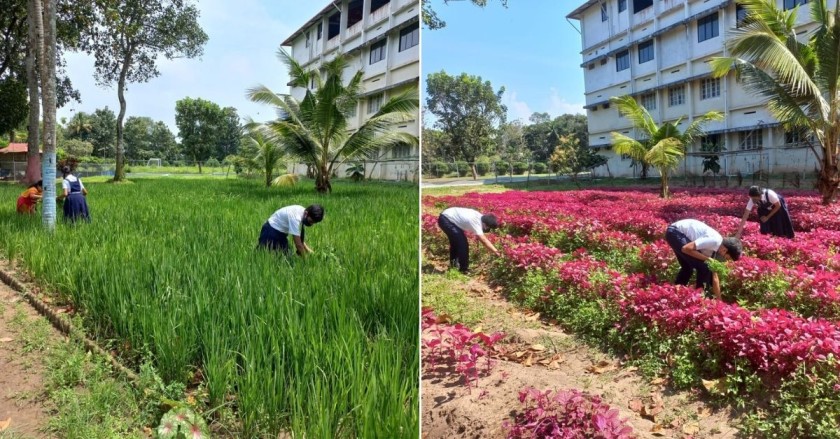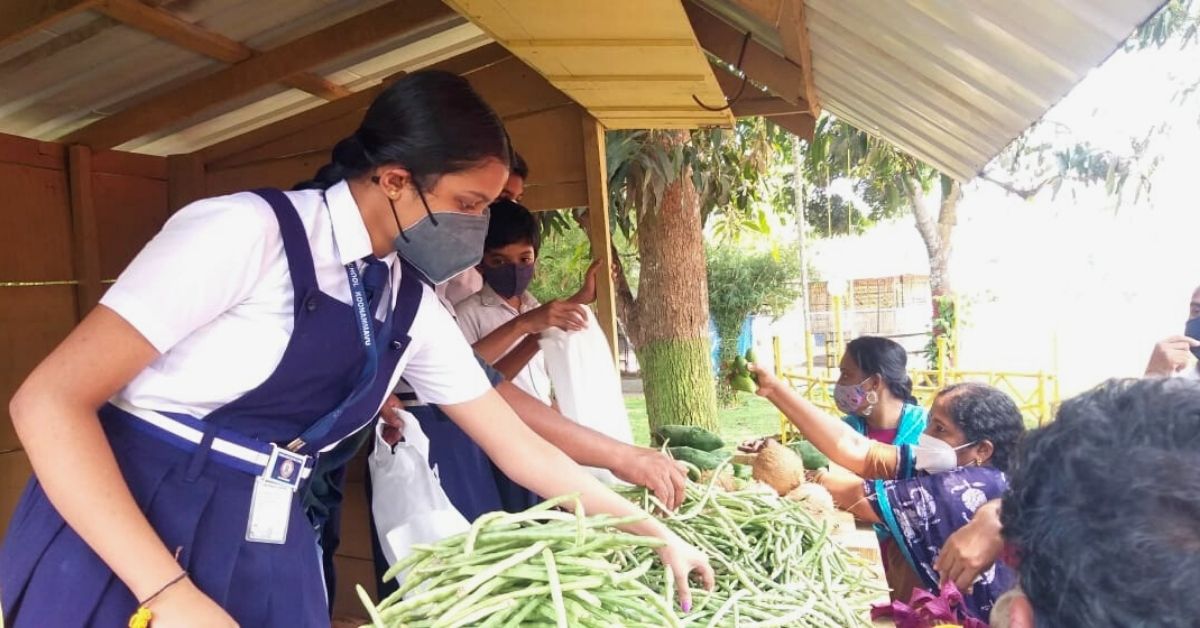Almost every child would agree that the playground is the best part of going to school. But in Kerala’s Koonammavu, children of Chavara Darsan CMI Public School have a different answer. For them, time is best spent in their flourishing and lush bamboo garden.
This school is on an inspiring journey to reach its goal of becoming carbon neutral. Apart from growing a bamboo garden, it has built several other successful green initiatives over the years, including a herbal garden and organic vegetable farm, all led by the members of ‘Nature Club’, with help from the Department of Agriculture.
“The efforts date back to almost seven years ago, when Father Paulose Kidangan joined our school as principal,” Anitha Sasikumar, a teacher and the Nature Club coordinator of the school, tells The Better India. “He was a true nature lover, and took the initiative to plant different varieties of bamboo within the campus. Under his initiative, we also started aquaculture in one of the two ponds on the compound. We started paddy cultivation and organic farming of vegetables on a small scale.”
After completing his tenure as principal, Father Paulose was replaced by Father Tommy Kochelanjickal. “We were fortunate again to be headed by someone who loves and respects nature and had the same enthusiasm and spirit as our former principal,” adds Anitha.
“Father Tommy encouraged us to expand these activities and initiatives and stood with us to make it what it is today,” she smiles.
A bamboo garden

The school currently maintains a garden that hosts over 34 varieties of bamboo from different parts of the country, spread over half an acre of land. “Whenever someone new visits our bamboo garden, they say it emanates a soothing effect, and that they feel cooler in its shade. It’s the same with our children as well — they love spending time in the garden more than anywhere else on campus,” says Father Tommy.
He adds, “Bamboo releases 30 per cent more oxygen in the atmosphere and absorbs more carbon dioxide when compared to other plants. It therefore serves our purpose of aiming for carbon-neutrality.”
“Sometimes, we conduct classes, yoga sessions, and meetings in the bamboo garden, and the children are very enthusiastic about it. Their faces light up when we decide to conduct classes in the garden,” says Anitha, who teaches Hindi.
Near the bamboo garden is a small poultry farm with hens and ducks, as well as goats, dogs, rabbits, and even love birds. Anitha elaborates, “It was Father Tommy’s love for animals that made him take the initiative to look after a few animals within the school campus. Our children adore the pets and they are taken care of by us. Recently, one of our students even donated a Persian cat to the lot.”
A hand at organic farming

When it comes to farming, the school practices several carbon-neutral natural methods to grow vegetables, paddy, herbs and several other plants. “No chemical fertilisers or pesticides are used on our farm or garden,” says Anitha.
She further explains, “We practice methods like crop rotation and integrated farming. We have been growing and harvesting a rice variety named Uma for the past seven years. This time we cultivated spinach after the paddy harvest. We recently procured and harvested the seeds of a special variety called Vlathankara spinach from the agricultural office.”
Other than spinach, vegetables such as cowpea, bottle gourd, tomato, ladies finger, chillies, brinjal, yam, tapioca and so on are cultivated on over 2 acres of land inside the campus.
“We harvested over 500 kg of vegetables in the last academic year,” she adds. “We sell these vegetables through our initiative called Eco Shop, a shop within the campus for selling all our organic produce.”
Besides vegetables, the school also breeds different varieties of fish like sea bass, swordfish, tilapia, and more. “When Father Tommy joined, he took the initiative to clean the second pond as well. Now we have over 5,000 fish altogether. We sell them through our Eco Shop and sometimes give them out for free to parents and staff. Other than that, the water from these ponds is used for agriculture purposes,” she says.
An Eco Shop

Father Tommy explains, “All our produce is organic and we needed a place to sell it. So, we decided to come up with the idea of setting up a shop that is fully taken care of by students.”
“The students are provided with a price list. They follow the list, measure the produce by themselves, and sell them to parents, students, and staff. The money collected through the sales is used for charity and other expenses within the school,” says Anitha.
According to Father Tommy, the students have been actively involved in most of the farming activities and other eco-friendly initiatives. He says, “I think farming within the school makes the children more responsible. It makes them aware about the amount of effort that goes into it, from sowing the seeds to harvesting the produce. It also encourages them to try their hands at agriculture.”
“Many kids in our school are seeing a paddy field for the first time in their life here, and I think that would explain the need for such initiatives in schools,” he adds.
Talking about their impact, vice-principal Anila Alexander says, “We are also happy about the fact that our initiative to promote agriculture among students has found success widely. We have been distributing seeds to students for setting up a garden at home. Now many of our students and their parents have started farming on their house terraces.”
“We are trying to reduce power consumption inside the school by using LED bulbs. Also, we have installed solar panels and are using solar lights. We are in the process of making the school run completely on solar energy,” she adds.
The school has also received several awards and recognitions from different media organisations like Mathrubhumi and Manorama, as well as from the panchayat.
(Edited by Divya Sethu)
No comments:
Post a Comment